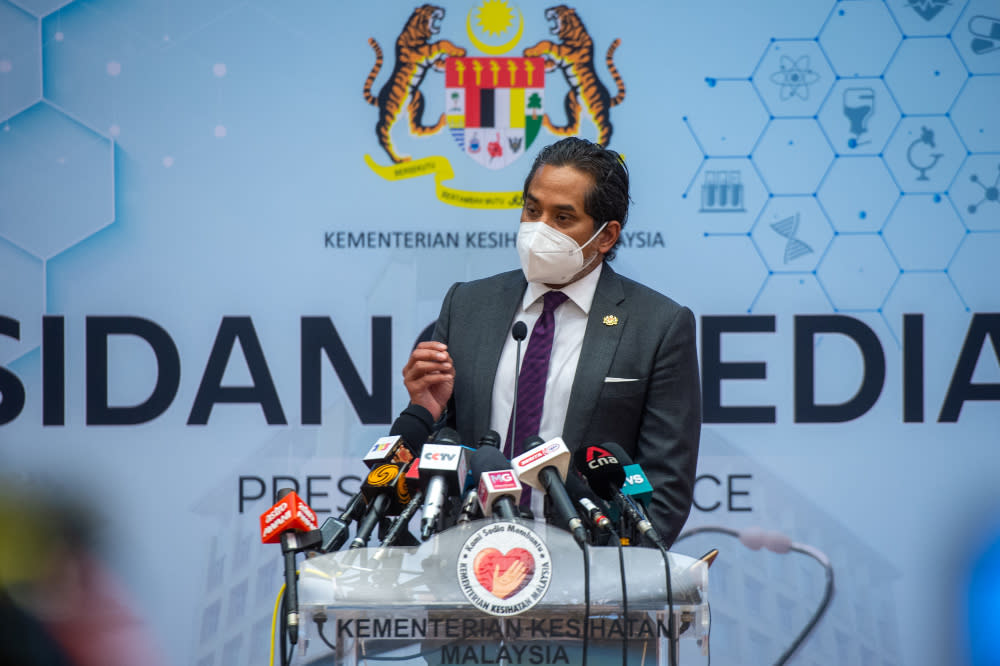Khairy says Health Ministry will be ‘secretive’ no more, make public detailed Covid-19 data

UALA LUMPUR, Sept 1— Newly installed Health Minister Khairy Jamaluddin has vowed to increase the transparency of his ministry and provide more detailed Covid-19 data to the public.
He said the aim was to quash the perception and previous accusations that the Health Ministry (MOH) was being secretive and selective with the data that it releases to the public.
“I have made the decision to increase the transparency of the MOH by giving detailed data and information to the public.
“We will be releasing this detailed data sometime next week, and this is granular data that we will offer to all to see, which is more than what has been provided before.
“The working culture of MOH will shift towards being more transparent so that there will be no more accusations of the ministry working in secrecy or becoming a stumbling block by those seeking information from the government,” he said during his first press conference for his new portfolio this evening.
Among the types of information that can be expected to be made public are those concerning the source of infections, information on brought in dead (BID) cases, and concerning adverse events following immunisation (AEFI).
Touching briefly on AEFI numbers, Khairy said that to date, out of the 34,455,366 doses of vaccines that have been administered, data from the MySejahtera self-declaration function showed a rate of 20.7 responses for every 1,000 doses.
When broken down further, Khairy said that an average of 0.04 responses per 1,000 doses was that of those who suffered from serious Covid-19 symptoms.
Remaining on the topic of transparency, Khairy also revealed how 404 individuals allowed to home quarantine are currently being monitored with electronic tracking bracelets.
“In this pilot project, a digital device, or a bracelet, is used to monitor the individuals undergoing home quarantine.
“Once the pilot project is done and we are satisfied with the efficiency and accuracy of the digital quarantine device, then we can start rolling it out to more people,” he added.

Related Articles PBB veep suggests virtual voting for Sarawak election during Covid-19 pandemic Covid-19: Bed occupancy for intensive care units in hospitals nationwide at 90pc capacity, says Dr Noor Hisham Covid-19: 187 new locally transmitted cases in Singapore, including record 113 unlinked ones



